15 September, 2003
Science Lecture - Trematomus Bernacchi
On Sunday nights there are science lectures in the galley (where we
eat). This Sunday Dr. Petzel gave a talk about the fish his group is
catching. These talks are well attended by the very educated staff
at McMurdo and during Main-Body there is a standing room only crowd.
Everyone wants to know about science, this is the reason many of the
people came to work here.
Dr. Petzel spoke about the salt regulation inside fish. That is how
it is absorbed and how it is released. To demonstrate how this
happens in humans he brought out four huge containers and told us
that this is how much blood our kidneys process each day. It is a
tremendous amount, and the waste from this only amounts to about two
liters which we urinate (that's why the toilet is in the picture, it
is a demonstration). He explains how humans regulate their salt, and
jokes that drinking Gatorade is nothing more than drinking sweetened
sweat. Next he moves on to the fish he is studying. These are
called Trematomus Bernacchi. These are the super salty fish I talked
about earlier. They exist at McMurdo in water temperature of minus
1.1 C. Sea water will freeze at minus 1.9 C. Dr. Petzel's group will
take these fish and warm them up a little and as they do the fish
will release their salt. They can study how this is done by
dissecting the fish later and looking at the gills. How these fish
regulate their salt might give us more clues into the function of our
own kidneys.
We had a successful launch of a balloon on Saturday, and now have two
in a row, both evening launches for the next days. I have been
working on a problem involving flow rate in the ozone pumps. The
weather is warming; it is only about -10 F or so now.
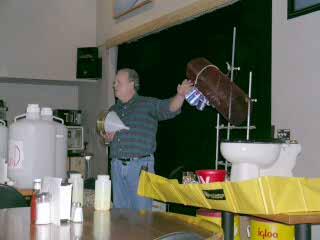
The Science Lecture
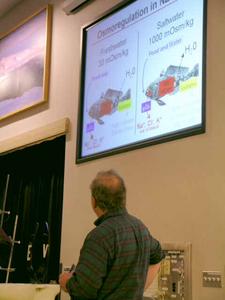
Dr. Petzel giving the lecture.
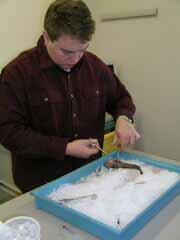
Time to figure out how these fish work.
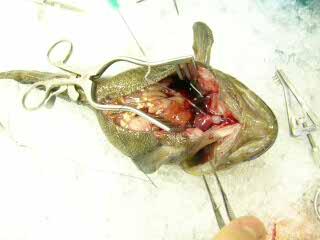
The dissection, they first do an "oil change" by injecting salt water through a place near the heart, it is stll beating.
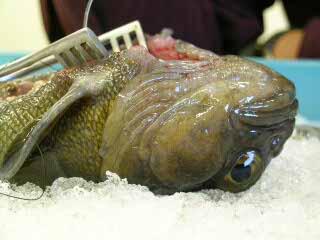
This fish was pregnant with many eggsacs.
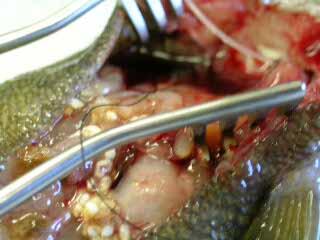
The bright white things are parasites, near there are fish eggs.
Contact the TEA in the field at
.
If you cannot connect through your browser, copy the
TEA's e-mail address in the "To:" line of
your favorite e-mail package.
|
